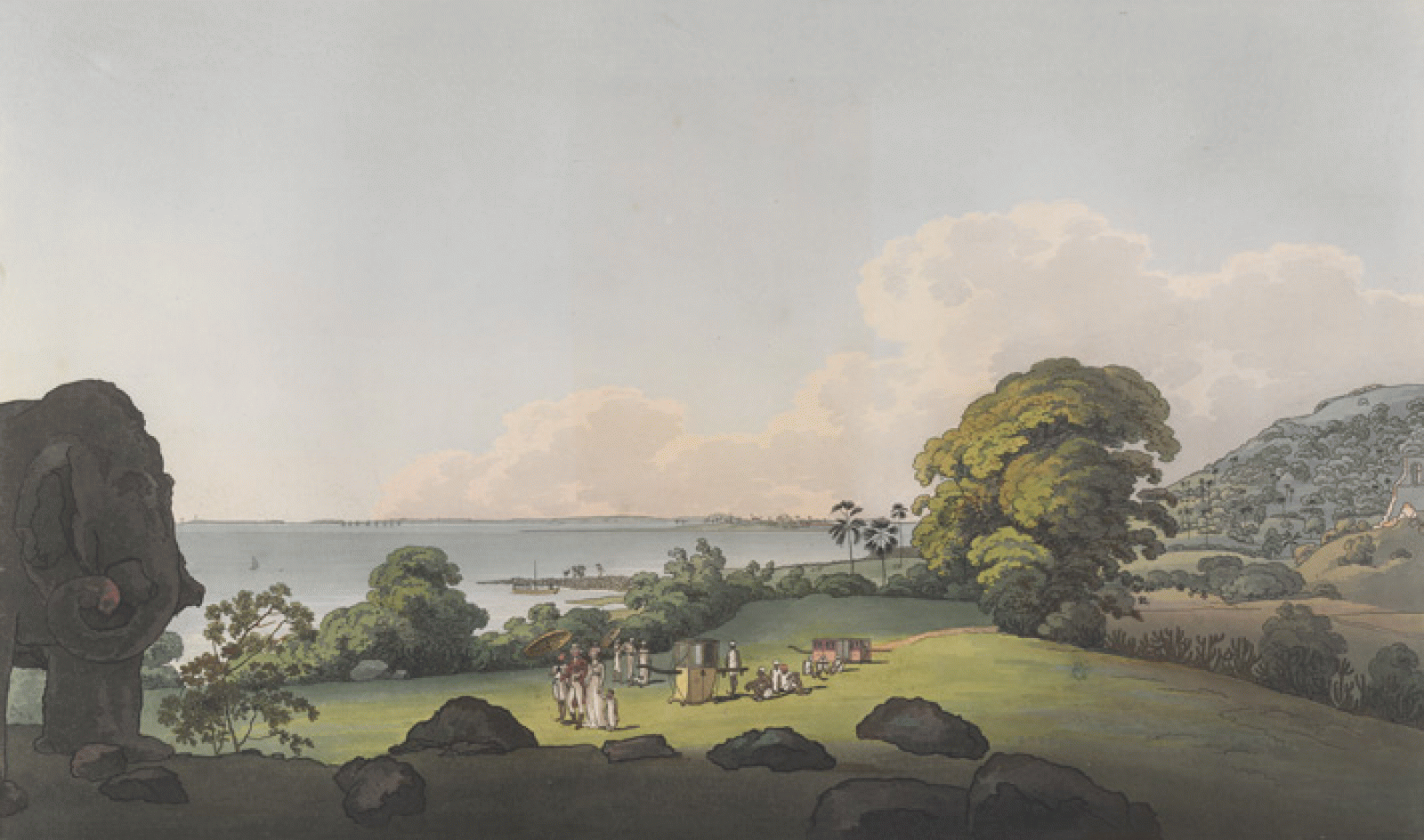Conferenza
Deepti Mulgund: Of Royal Picnics, and Tickets: Conservation and Custodianship of the Elephanta Caves in Colonial Bombay

‘View from the Island of Elephanta,’ in Bombay Views, James Wales, Coloured Etching, 1800 (image source: British Library)
In the 1870s, the British colonial government in Bombay (now Mumbai), a prime port city in western India, struggled with tackling vandalism at the Elephanta Caves. The rock-cut cave temples, dated between the sixth and ninth centuries were located on an eponymous island, 10 km from the city, and held monumental sculptures of the Hindu god Shiva. The Caves had been in British possession for at least a century and now faced unprecedented damage through human agents, who used the site for picnics, firing practice, drinking, and raucous merrymaking.
Among the measures that the Bombay government considered to curb the destruction of the Caves and its valuable sculptures, was the introduction of a ticket or paying to visit the site. In the same period, the Bombay administration also found the site suitable for hosting at least three picnics or ‘fetes’ for British royals touring the Indian Subcontinent. The presentation juxtaposes the conservation of the Caves, and attempts to rewrite the terms of access to the site, with the Bombay government’s programme of leisure and consumption devised for royal visitors. In the process, it problematizes the binary of the consumption of ‘nature’ at picnics, and the preservation of culture through conservation policies.
Avviso
Questo evento viene documentato fotograficamente e/o attraverso riprese video. Qualora non dovesse essere d’accordo con l’utilizzo di immagini in cui potrebbe essere riconoscibile, da parte del Kunsthistorisches Institut in Florenz a scopo di documentazione degli eventi e di pubbliche relazioni (p.e. social media) la preghiamo gentilmente di comunicarcelo.


